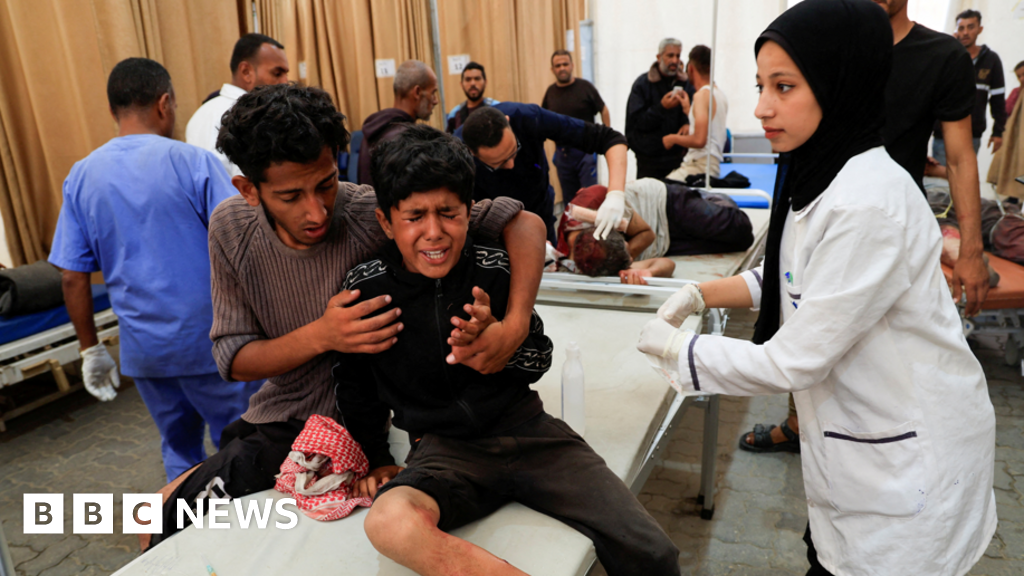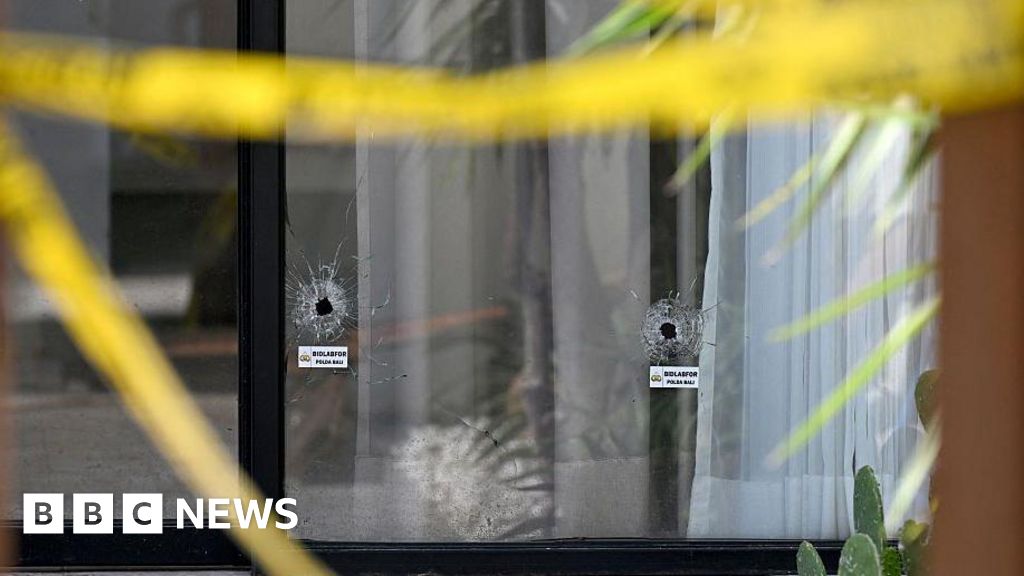ARTICLE AD BOX
Image source, Reuters
Image caption,Russian forces now control nearly all of Mariupol
Ukrainian officials have rejected demands by Russian forces that defenders of the city of Mariupol should lay down their arms.
Prime Minister Denys Shmyhal said in an interview with ABC that Ukrainian forces still in the city would "fight to the end".
Troops of the Azov Battalion are still holed up in the massive Azovstal steel complex, but Russia has offered safe passage to those who surrender.
Capturing the whole of the city is seen as a major strategic prize for Russia, leaving it in control of a vast swathe of southern and eastern Ukraine.
Meanwhile in Kharkiv, bombardments continue, with at least five people killed and 13 injured. Fires are said to be raging throughout the city.
The BBC's Joe Inwood in Dnipro says air raid sirens across eastern Ukraine have gone from sporadic to near constant.
The residents who won't leave
Rayisa Horislavets decided to stay in Serhiivka. "I can't afford to rent an apartment somewhere safer," she said
As many population centres in eastern Ukraine come under fire, what about the residents who have been left behind as most people leave?
The small village of Serhiivka was completely quiet on Sunday - hardly a person on the streets or milling around the centre of the village, where you would normally find life.
There used to be 1,500 people here, but today there are only about 300 residents left, and more are leaving as Russia renews its campaign.
"I have lived here all my life, I'm not going anywhere," said Mykola Luhynets, a 59-year-old carrying a rifle and wearing the armband of the territorial defence. Luhynets signed up and took a gun in February. "I will stay in Serhiivka and defend it if necessary," he said.
Read more from the BBC's Joel Gunter, as he finds older residents with strong emotional ties and no desire to die away from home.
Ukrainians join Pope for Easter appeal
Pope Francis has used his Easter message to appeal for peace in Ukraine.
The Pope condemned the violence and destruction caused by Russia's invasion during his annual address from St Peter's Square in Vatican City.
He was joined by several Ukrainian officials.
Among them was Melitopol Mayor Ivan Fedorov, who was taken prisoner by Russian forces then released in a prisoner exchange.
Speaking through a translator, Pope Francis called for an end to the war in Ukraine
Lorries stuck at EU-Belarus border
Image source, Reuters
Image caption,Polish customs officials are continuing to process lorries despite the passing of the deadline
A huge queue of lorries has formed at Poland's eastern border with Belarus as Russian and Belarusian drivers try to leave the EU.
Lorries from the two countries carrying any goods except for medicine, mail or petroleum products are banned from the bloc as of midnight on Saturday (22:00 GMT).
The move is part of sanctions over Russia's invasion of Ukraine.
Polish border and customs officials are continuing to process the lorries waiting to leave despite the passing of the deadline.
When the queue was at its longest on Saturday evening, waiting times were about 28 hours.
Online posts 'key to prosecutions'
Image source, SOPA Images
Image caption,A young woman with a mobile phone takes pictures of a destroyed Retroville shopping centre in Kyiv following a Russian shelling attack
With so much of the horror of conflict on display to the world in recent weeks, experts say images posted online will be crucial to prosecuting war crimes in Ukraine.
Cases against individuals could depend on unverified images of unlawful killings, wartime sexual violence and torture, says Prof Yvonne McDermott Rees, of Swansea University.
She said material, known as open-source information, had "completely transformed our way of knowing about human rights violations".
Witness, a charity that uses videos to document human rights abuses, has published guidelines on how bystanders can gather images that will be acceptable for use in courts.
'My face was stolen by scammers'
Scammers have been profiting from the war in Ukraine by spreading emotional appeals across the internet and stealing identities.
Global Disinformation Reporter Hannah Gelbart investigates their emotionally charged tricks, and follows digital paper trails across the internet.
How scammers are stealing identities to profit from Ukraine’s war

 3 years ago
69
3 years ago
69








 English (US) ·
English (US) ·